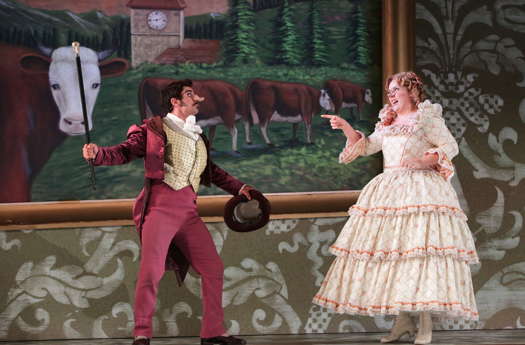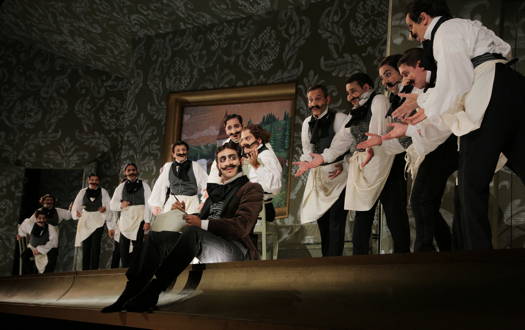- Carolyn Nott
- Andrew Schartmann
- Caporale
- Andrew Downes
- Umbrella Studio
- Central England Camerata
- Tonia Ko
- Siberian Tiger
 DISCUSSION: What is a work? John Dante Prevedini leads a discussion about The performing artist as co-creator, including contributions from Halida Dinova, Yekaterina Lebedeva, Béla Hartmann, David Arditti and Stephen Francis Vasta.
DISCUSSION: What is a work? John Dante Prevedini leads a discussion about The performing artist as co-creator, including contributions from Halida Dinova, Yekaterina Lebedeva, Béla Hartmann, David Arditti and Stephen Francis Vasta.
 PODCAST: John Dante Prevedini leads a discussion about Classical Music and Visual Disability, including contributions from Charlotte Hardwick, Robert McCarney, Halida Dinova and Giuseppe Pennisi.
PODCAST: John Dante Prevedini leads a discussion about Classical Music and Visual Disability, including contributions from Charlotte Hardwick, Robert McCarney, Halida Dinova and Giuseppe Pennisi.
Young Rossini's 'Comedy for Adults'
GIUSEPPE PENNISI sends his
final report from Pesaro
Few people know, or remember, that the nineteen-year-old Gioacchino Rossini spent a few hours in jail in Bologna for 'indecent exposure'. What did he do? Messing up in one of the brothels in Via delle Oche (within walking distance of today's Teatro Comunale)? He seems to have been a regular customer of those enterprises. Not that time. He had composed the score of a dramma giocoso per musica by Gaetano Gasbarri - L'equivoco Stravagante, which had its debut on 26 October 1811 at the Teatro del Corso. The opera caused many irate reactions by the Archbishopric and the conformists: after only three performances, the Board of Censors banned it.
The libretto is full of double meanings, innuendo, and jokes with erotic-sexual overtones. More significantly, the plot focuses on a girl who, in order to avoid the marriage arranged against her will, and tie the knot instead with a handsome but penniless young man, is made to pretend to be a castrato - at this time that practice was still in use. All kinds of intrigues take place, even conscription to the army, until the happy end. The wordings and the situations that then raised eyebrows, would today be suitable for a performance of high schoolers in an educational institute operated by nuns.
This work had already ploughed through the venues of the Rossini Opera Festival (ROF) in 2002 and in 2008, but had left few traces, mostly because of unfortunate staging. This year's new production was entrusted to Moshe Leiser and Patrice Caurier, 'historical' directors of Cecilia Bartoli. I've previously reviewed their work in, for instance, productions of Handel's Giulio Cesare in Egitto and Bellini's Norma presented at the Salzburg Festival. The two directors asked the singers and other staff to start rehearsals on 25 June (for a debut planned for 13 August). The light opera became a gem of wit and fun, thanks to the contributions of all.
The idea is not to present a slightly scurrilous farce but a theatrical and musical piece that today would be called 'a comedy for adults'. It is to be hoped that the production will be seen in other Italian and foreign theaters as well as via a high quality DVD and on major television channels dedicated to music (including Sky Classica, ARTE and Mezzo). It shows how Gasbarri and Rossini's joint product precedes light, allusive bourgeois comedy by decades. Indeed, it really is a lot of fun.
The plot is set in a rich Bolognese farmer's mansion in the early nineteenth century. The action is fast, the sets and the costumes gorgeous, and the acting is perfect; several hilarious gags add spice to the libretto. Obviously many of the implicit references in the libretto become explicit.

Davide Luciano and Teresa Iervolino in L'equivoco Stravagante at the Rossini Opera Festival. Photo © 2019 Studio Amati Bacciardi
There are interesting musical aspects; for example, the 'first finale' seems a sketch of what, five years later, was the same number in Il Barbiere di Siviglia and some passages appear to anticipate La Cenerentola. More interesting than these philological elements is that, at the premiere on 13 August 2019, I experienced the audience laughing, applauding and being clearly merry during a musical comedy dating from over two centuries ago, and with a duration of about two and a half hours. There were many young people in the huge Vitrifrigo Arena, and they visibly enjoyed the performance. This is a good omen for both Rossini's lesser known repertoire, and above all, for the future of opera in general.

Manuel Amati and members of the chorus in L'equivoco Stravagante at the Rossini Opera Festival. Photo © 2019 Studio Amati Bacciardi
It is evident that the artists were having fun. Carlo Rizzi conducted the RAI National Symphony Orchestra con brio. The protagonist Teresa Iervolino burst with erotism and good humor with her slightly dark voice and agility. Her amorous counterpart, Pavel Kolgatin, has a good register and recites glibly. The two wealthy and surly seniors, Paolo Bordogna and Davide Luciano, are old acquaintances of the ROF and Rossini repertoire. Claudia Muschio and Manuel Amati were quite effective in the roles of the two servants that devise the intrigue.
Copyright © 17 August 2019
Giuseppe Pennisi,
Rome, Italy



